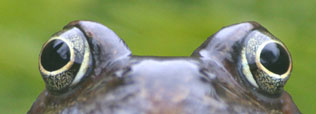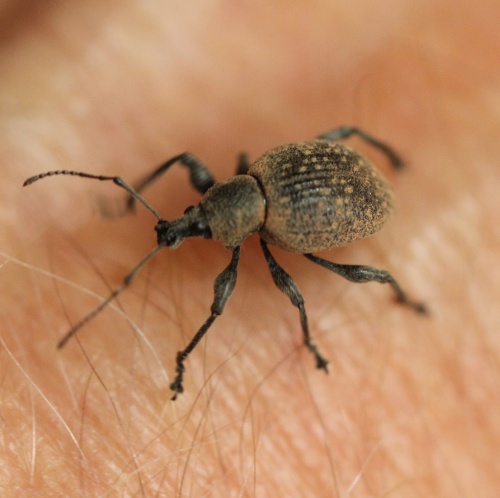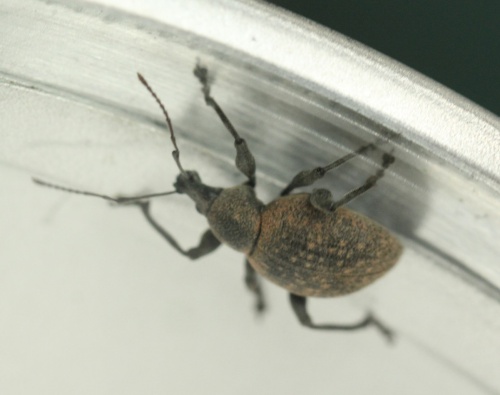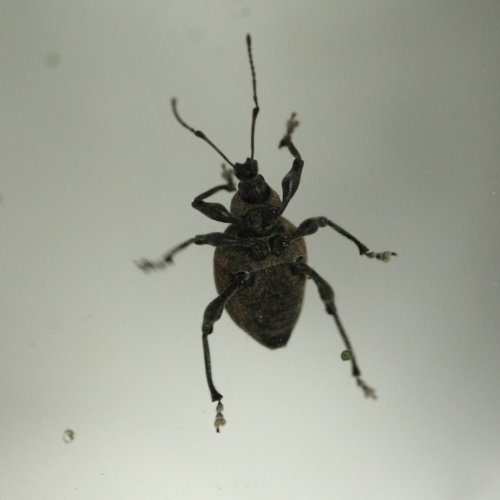Otiorhynchus armadillo
A very distinct weevil, the females reaching 15mm in length, it is similar to the more common Vine weevil (Otiorhynchus sulcatus), but O. armadillo has a broader body shape, and no tooth on the front femur.
Unless identified by a recognised expert, good photos are required that show the key ID features. Also state the beetle's size in the comments box.
A pest of plants in parks and gardens. Hosts include Spindle tree leaves, Rosaceae plants, Ivy, Cherry Laurel, Ornamental Willow and Viburnum.
Although it is capable of surviving cold conditions, it is most likely to me observed during the warmer months of the year.
The species seems to be mainly nocturnal and the larvae feed on various plant roots whilst the adults feed on the leaves.
Mainly recorded from the southern half of Britain, but may be spreading. Believed to have been accidentally imported from the Mediterranean and regarded as among the most serious garden pests in Europe. In South West London where they were first discovered in 1998 the species is now reaching pest proportions and it has officially become the most common weevil there.
Rarely recorded in Leicestershire and Rutland, but may be moving into our area.
Leicestershire & Rutland Map
Enter a town or village to see local records
MAP KEY:
Yellow squares = NBN records (all known data)
Coloured circles = NatureSpot records: 2025+ | 2020-2024 | pre-2020
UK Map
Species profile
- Species group:
- Beetles
- Kingdom:
- Order:
- Family:
- Records on NatureSpot:
- 1
- First record:
- 12/06/2021 (Bennett, Simon)
- Last record:
- 12/06/2021 (Bennett, Simon)
Total records by month
% of records within its species group
10km squares with records
The latest images and records displayed below include those awaiting verification checks so we cannot guarantee that every identification is correct. Once accepted, the record displays a green tick.
In the Latest Records section, click on the header to sort A-Z, and again to sort Z-A. Use the header boxes to filter the list.




